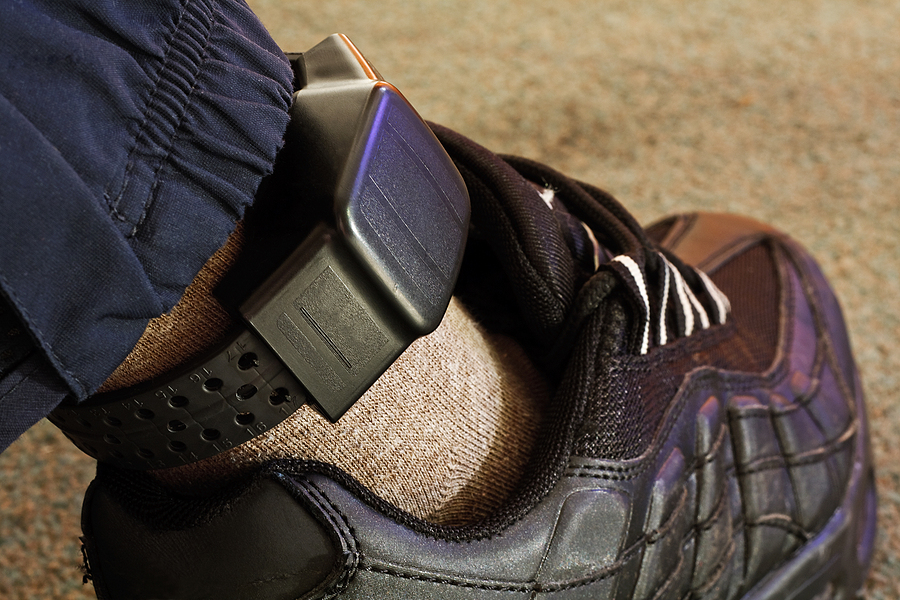Home detention, also called house arrest or home confinement, is a court-ordered, officer-supervised penalty that is sentenced to certain offenders in lieu of jail time. When sentenced to such penalty, a person must remain within the set boundaries of their home at all times, but may be given limited travel privileges for work, school, or doctor’s appointments.
Although the label seems pretty clear, there is much more to a house arrest sentence than just home confinement. If you or someone you love is facing house arrest, it is helpful to get some answers to some common questions in order to put your mind at ease and clear up any confusion you had about the terms and conditions of house arrest.
Continue reading to review the most frequently asked questions about home confinement to do just that!

Top House Arrest FAQS
Can a Juvenile Be Sentenced to Home Detention?
Both adults and minors under the age of 18 years old can be sentenced to home detention. In fact, many teenagers are sentenced to house arrest because most judges aim for a safer, more productive alternative to juvenile hall or jail. Whether juvenile or adult, all convicted offenders are put on temporary probation during the duration of the sentence. Probation can include routine meetings with a probation officer, random drug screenings, community service, full-time employment, drug rehabilitation, GED completion, MADD panels, and more.
What are the General Rules of House Arrest?
Every person’s case is different, and subject to varying regulations. However, the general rules of house arrest include no drugs or alcohol in the residence, no drug or alcohol consumption, a probation officer can come by the home at any time to check for drugs or alcohol or to perform a random drug test, adherence to a set curfew, and all orders of probation.
All convicted offenders on home detention must also wear an electronic monitoring bracelet around their ankle. This keeps track of their location. If the subject goes beyond their allotted property line, the probation officer and local law enforcement are immediately notified. Tampering with an ankle monitor is considered a violation, and a criminal charge in itself. The device is programmed to detect even the slightest tampering, then records and sends the notification to the proper authorities.
What Happens if You Violate House Arrest?
If a convicted offender breaks any of the rules of their sentence, they are subject to being ordered to a probation violation hearing in court. This means you not only face the previous charges, but now face additional ones as well. Sometimes, a probation officer will give a warning the first time, but it is important to understand that the terms are taken very seriously, and one minor infraction will be penalized.
Do You Need a Lawyer if You Violate?
In most cases, yes. The penalties for such violations are taken very seriously, and the penalties a defendant faces for them are very harsh as well. Your criminal defense lawyer already knows your case and will defend you once again to minimize the penalties you face for violating. They are your only hope at avoiding the maximum charges for a house arrest violation.
How are You Monitored on House Arrest?
A person on house arrest wears an electronic alarm device on their ankle at all times. This device is coupled with another that is connected to a person’s home phone. The device will record the dates and times of all traveling within and outside of the set boundaries. If any of these records show that a person traveled outside of their boundaries during a time that was not permitted, the probation officer is notified, and the person is charged with a violation. Tampering with the device will also be recorded and considered a violation.
Are you worried that your recent criminal charges will land you with the maximum penalties, like jail or house arrest? Contact the Law Office of David E. Lewis at 317-636-7514 to connect with one of our skilled and aggressive criminal defense attorneys in Indianapolis, Indiana. We can meet over the phone, via online video conference, or in person at our office.
Related Posts:
How Your Sentence Will Be Determined as a Defendant Facing Criminal Charges
Do I Have to Let Police in My House if They Show Up With a Search Warrant?
How a Pretrial Diversion Program May Reduce Your Sentence
